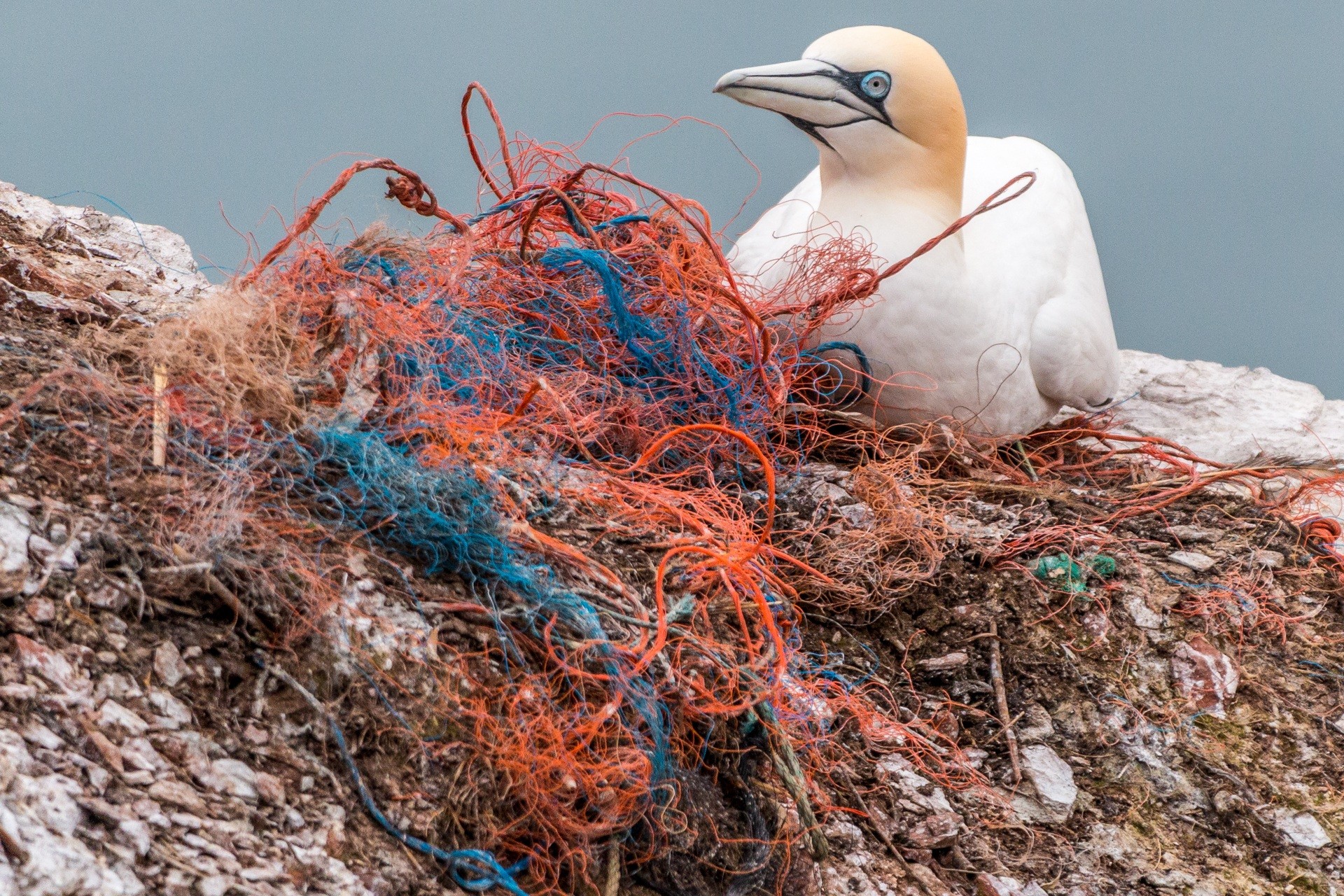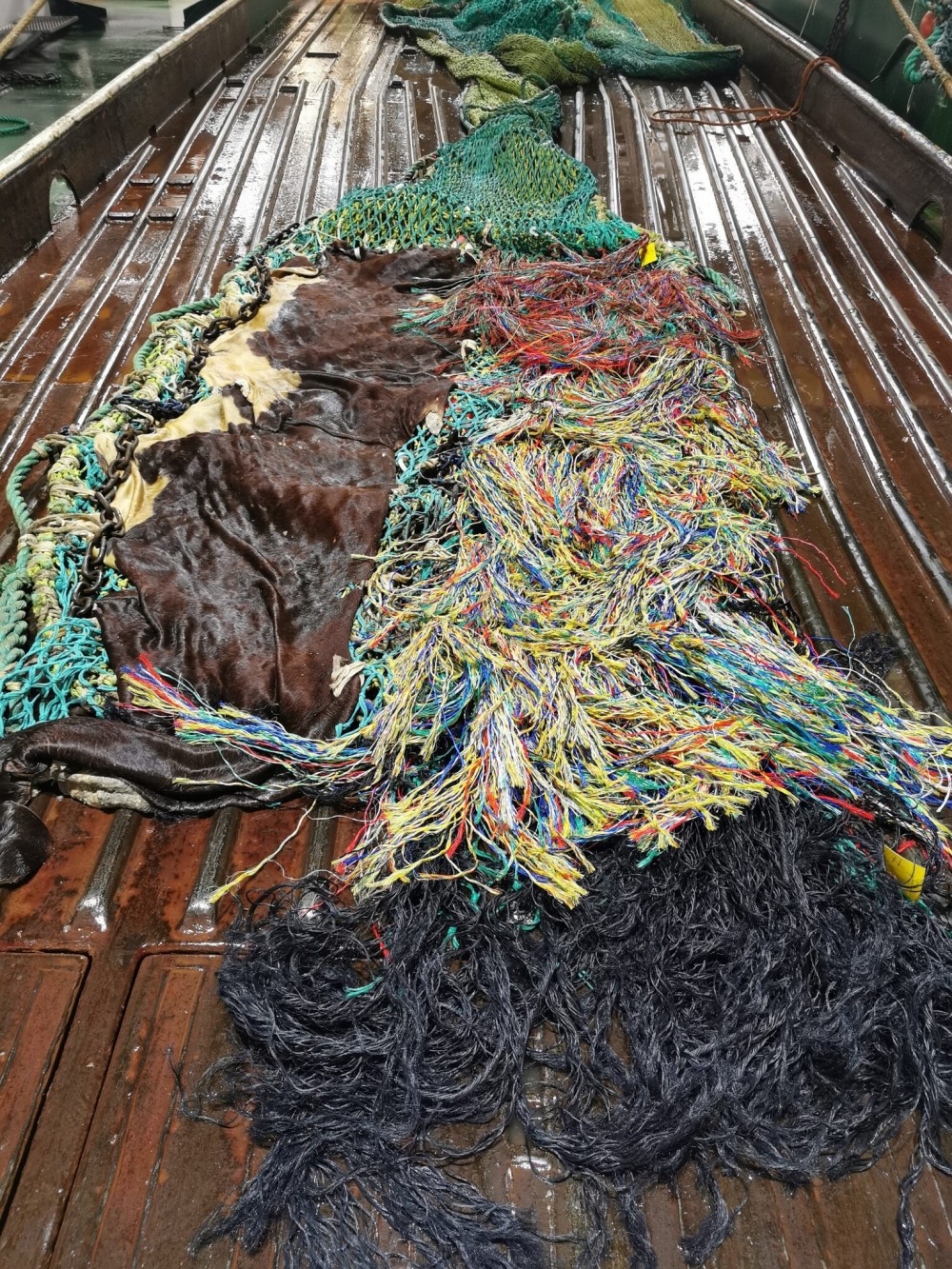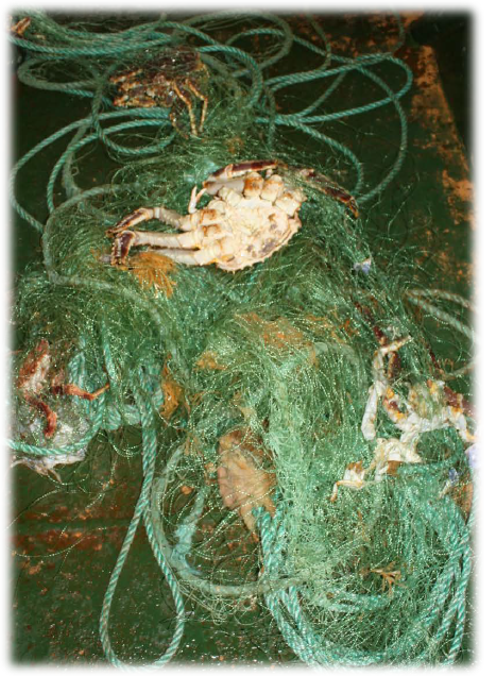
Dsolve: working to prevent plastic litter in the marine environment
By: Roger B Larsen // UiT The Arctic University of Norway
A lot of the plastic waste originating from fishing activities ends up as beach waste, but this accounts for only 10% of the total volume, according to reports published by the Norwegian Environment Agency. Huge islands of waste float around in the seas, a very large proportion of which ends up on the seabed. Lost fishing gear causes unintentional loss of marine life through “ghost fishing”. For Norwegian fisheries alone, the annual loss of fishing equipment leads to an estimated future loss of earnings totalling billions of Norwegian kroner. What if it were possible to find biodegradable alternatives to the plastics currently in use, thus reducing or eliminating ghost fishing? This is where Dsolve comes in.

Research-based innovation
Dsolve is a centre for research-based innovation, led from UiT The Arctic University of Norway. It is a partnership between fourteen partners from the fishing and aquaculture industries and equipment suppliers, plus five national and three international research institutions. The goal of the centre is to develop technologies and new environmentally friendly products, facilitate environmental management, and promote innovations that can make plastic-based value chains more circular and resource-efficient. This will reduce the carbon and climate footprints and will be in keeping with the UN’s climate, energy and sustainable development goals.
No quick fix
Our working hypothesis is that the challenges linked to plastic marine litter originating from the fishing and aquaculture sectors can be significantly reduced if traditional plastics are replaced by new, biodegradable materials. But there is no quick fix. The research and development of new products will take time and documenting their impact on fisheries will be crucial. The new materials must be biodegradable in the marine environment, but must also be perceived by users as equally useable and efficient as the current petroleum-based materials. How much it will cost to reduce and ultimately eliminate ghost fishing and prevent macro- and microplastics from escaping into the marine surroundings is not known, but no stone can be left unturned in our efforts to solve one of the greatest environmental problems of our time.
ADVERTISEMENT
Designing new basic materials

Dsolve was established in November 2020 and the Centre was officially launched on 28 April 2021. Planned activities include work packages relating to the development of new biodegradable basic materials, degradation experiments in controlled environments, and practical use in the fishing industry. Delays caused by the pandemic affected the progress of these and other work packages. Nonetheless, work has commenced at the laboratories to analyse and test different biodegradable materials. Our international partners have a strong focus on designing new basic materials for use in the fishing industry. During 2021, fishing experiments were conducted on a commercial scale in Norway and Denmark using biodegradable nets supplied by one of our foreign partners. New biodegradable and well-known bio-based materials (natural fibres) were tested in conventional longlines and active fishing gear such as bottom trawls and demersal seine.
Ultimately, we intend to disseminate our results to motivate fishermen and the supplier industry to adopt the use of biodegradable materials.
Published results will be uploaded to Dsolve’s websites on an ongoing basis and will also be communicated via our LinkedIn, Facebook, and Twitter accounts.
DSolve
DSolve – is a research-based innovation centre for the development of biodegradable plastic for use in the fishing and aquaculture industries.
The Centre’s vision is to reduce the amount of plastic marine litter and associated issues. Plastic litter can take the form of macroplastics and smaller plastic particles. Lost fishing equipment may lead to “ghost fishing”, which in turn leads to an unintended reduction of fish stocks and future loss of earnings in the fishing industry. Our ambition is to place Norway at the forefront of research, development and use of smart biodegradable materials. This will enable us to manage the challenges posed by plastic-based materials in fishing activities worldwide.
Education is a priority at centres for research-based innovation and Dsolve aims to train eight PhD candidates, four postdoctoral fellows and many MSc candidates. Dissemination of the outcomes of these development efforts will make it easier for industry players to adopt the use of biodegradable materials.
The Dsolve name and the logo comprise multiple elements. Dsolve is pronounced “dissolve” and refers to our vision of developing new materials that are biodegradable in the marine environment. This process is illustrated by the D having broken apart and the loose bit forms the “l” of Dsolve. The word “solve” highlights our ambition to solve a major environmental problem and secure a leading position for Norwegian industry.
This story is originally published on the website of the Fram Centre
The Barents Observer Newsletter
After confirming you're a real person, you can write your email below and we include you to the subscription list.


